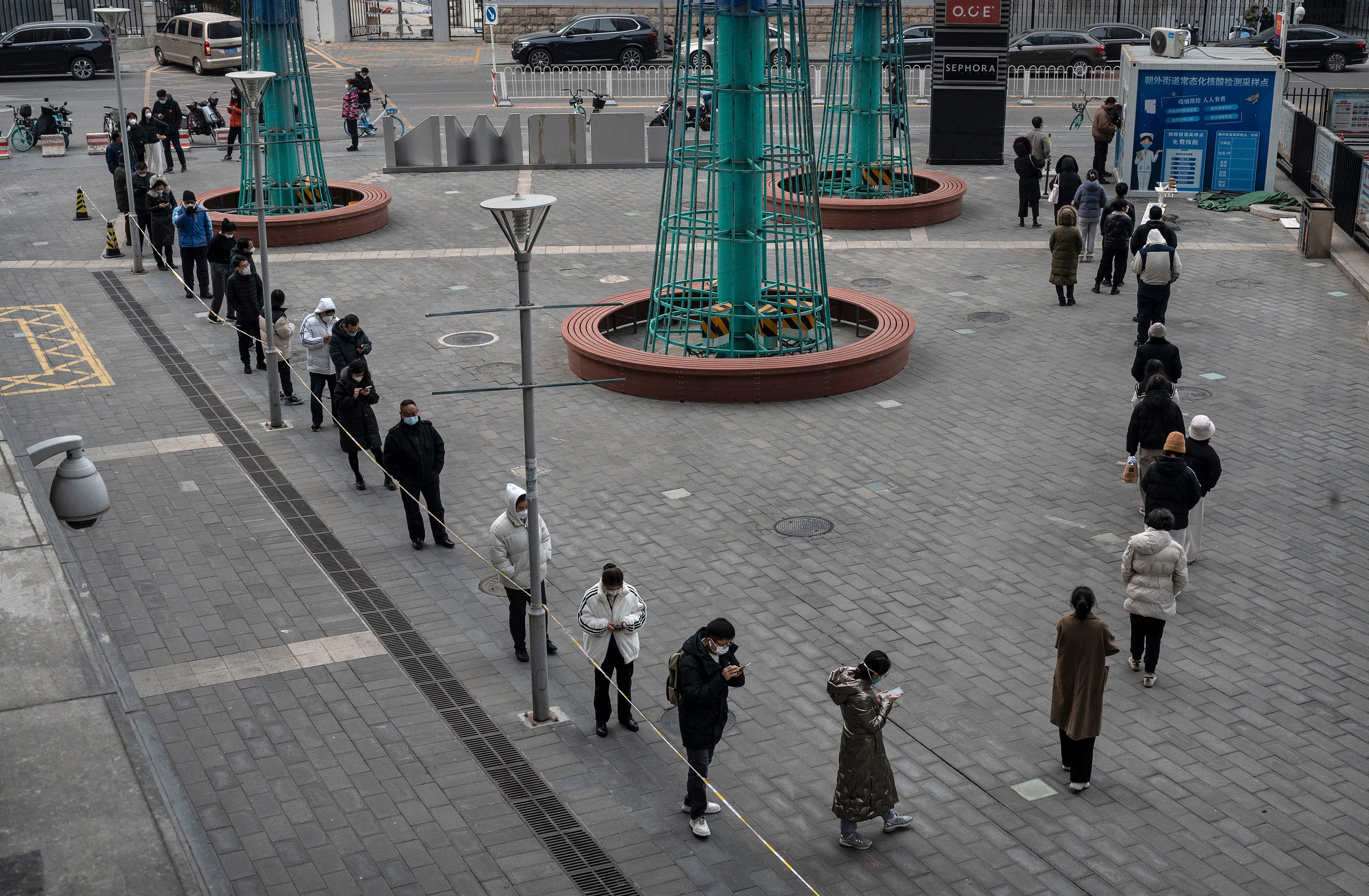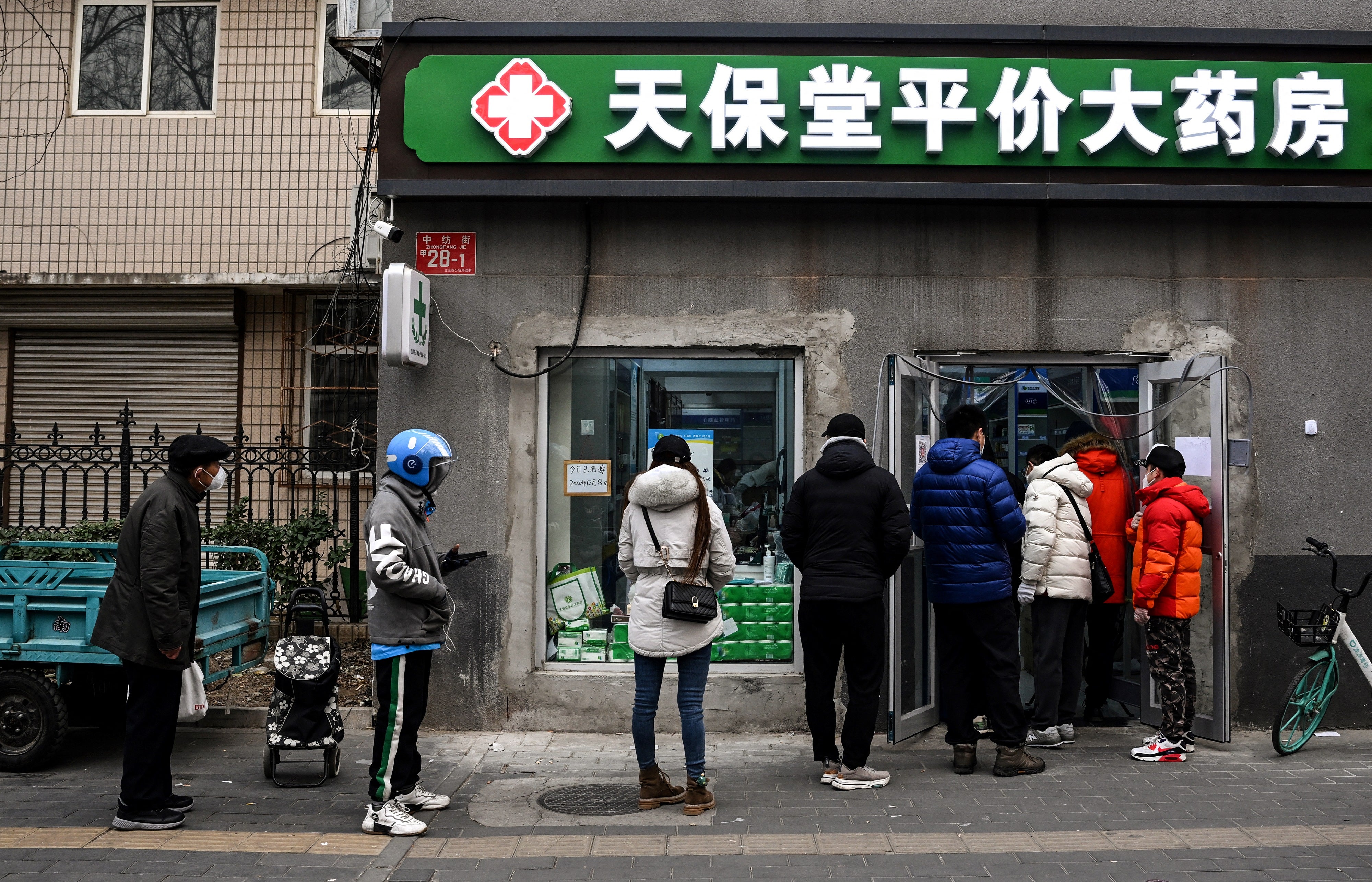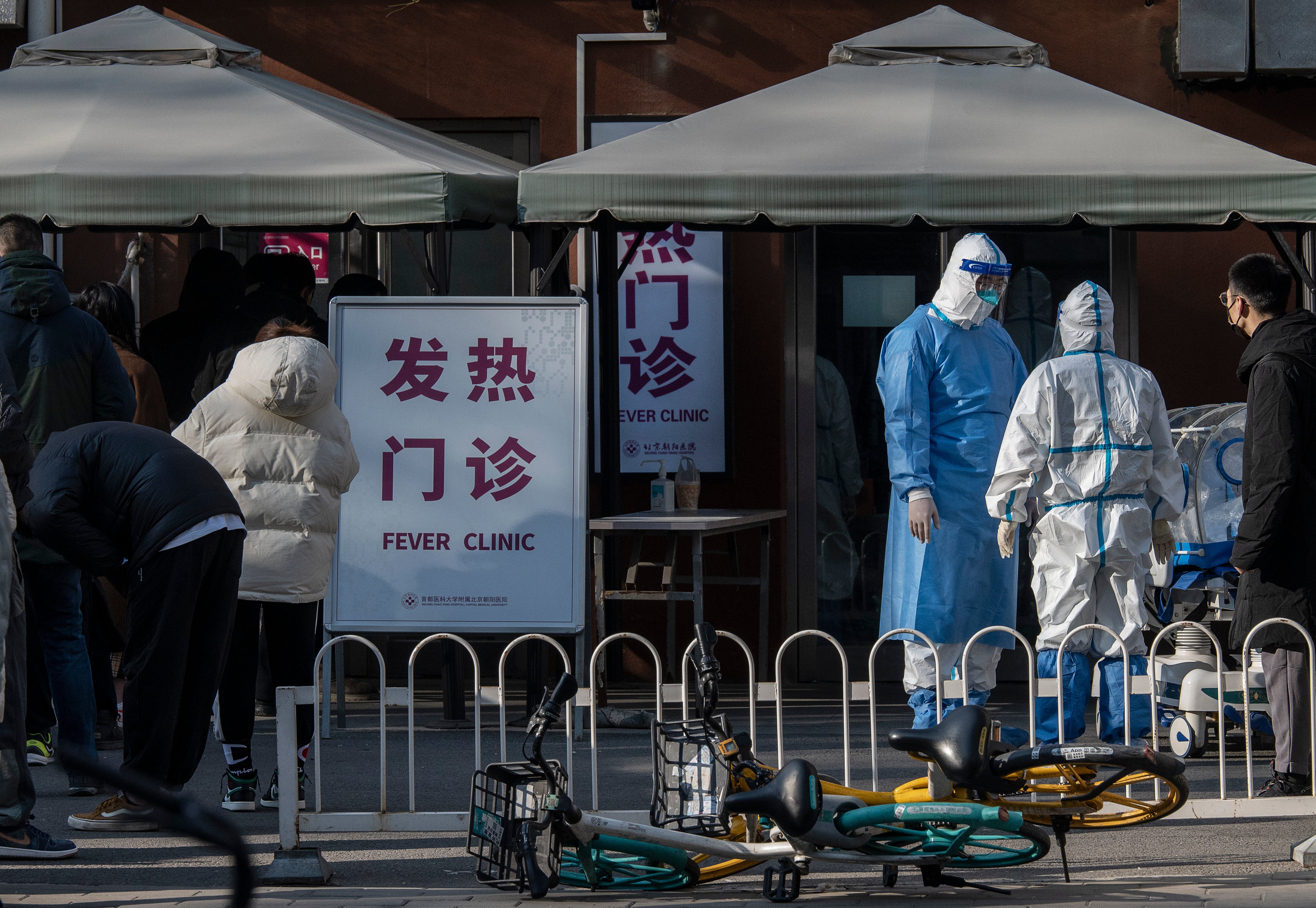‘We are accepting the new reality’: China prepares for exit wave of Covid infections
A swirl of hope, fear and resignation has gripped China since the government announced that it was reducing Covid requirements, write Christian Shepherd, Lyric Li and Lisa Movius

A month ago the northern Chinese city Shijiazhuang was in panic. Residents worried they were unwitting participants in some kind of public health experiment after becoming the first city where coronavirus testing requirements were suddenly scrapped even as cases continued to rise.
But the mood changed after the government announced Wednesday the biggest nationwide relaxation of Covid restrictions since the start of the pandemic.
“We are accepting the new reality,” says Yang Lianfang, a local civil servant. Her neighbours have even started to joke that if you haven’t tested positive yet, you might need to work on your social skills. “Reopening is happening and there is no return.”
A swirl of hope, fear and resignation has gripped China since the government announced that it was reducing requirements for regular PCR testing, digital health passes and quarantining in centralised facilities for even minor infections – the pillars of the official Covid fighting policy. The shift comes after discontent over harsh and unpredictable lockdown erupted into the most significant wave of civil disobedience since the Tiananmen Square protests of 1989.
Officials never formally declared an end to “zero Covid,” but the new approach suggests the underlying goal has shifted: like most of the rest of the world, authorities are now primarily concerned with safeguarding vulnerable groups and minimising the number of deaths and severe cases, rather than trying to stop the virus altogether.
But tempering the joy of saying goodbye to sudden lockdowns is concern about an exit wave. A speech by government adviser and former National Health Commission official Feng Zijian in which he predicted that the first wave could see about 60 per cent of the population infected was shared widely on Thursday.
Chinese experts have long warned that the country risks undoing the early successes of its strict approach if it opens too quickly. Lockdowns and mass testing ensured that China’s case count and deaths were among the lowest in the world. The strategy also means that very few people have been exposed to the virus. The lack of natural immunity, combined with low vaccination rates among the elderly and little investment in emergency care, could lead to a surge in severe infections and a high mortality rate.
“An exit wave seems more or less inevitable at this point,” says Christopher Beddor, deputy China research director at Gavekal Dragonomics. “There are roughly 25 million people over the age of 60 who have not received a single vaccine dose. Hong Kong’s reopening experience points to a wave of infections ahead, as well as a strain on the hospital system in many areas.”

In November, Chinese epidemiologists led by Zhuo Jiatong, head of the Centre for Disease Prevention and Control in Guangxi region, estimated that, while strict containment measures had up until that point saved 6 million lives, 2 million could die if the country experiences the kind of devastating wave of infections that struck Hong Kong earlier this year.
Hospital capacity is also an issue. Zhong Ming, deputy director of the intensive care unit at Zhongshan Hospital in Shanghai, told state-run outlet The Paper on Friday that China “shouldn’t be too optimistic” about improved ICU readiness compared to 2020 because the number of critical and severe cases in the coming wave could be much higher. For the next few months, people will need to “grit their teeth and persevere,” he said.
The shift in approach has been jarring for many in China after the leadership only weeks earlier doubled down on the zero-Covid policy. By contrast, state broadcaster China Central Television said Thursday that the country had “officially stepped on a path toward the end of pandemic life.”

One reason behind the abrupt shift, says Hongshen Zhu, a postdoctoral fellow at the University of Pennsylvania who studies the politics of China’s lockdowns, is that the protests changed the risk calculation for local officials: social stability became more important than rising cases.
“For them, keeping lockdowns and pursuing zero Covid now harmed their political survival while letting cases rise becomes less risky since case numbers were increasing across the country,” Zhu says.
A test for the new regime will be the ongoing outbreak in Beijing, which has the greatest number of designated “high risk” zones in the country but is still doing away with lockdowns.
Elina Wang, a documentary maker who lives in the narrow alleyways of the city centre, says that her neighbourhood had been through four rounds of lockdown just since October, each marginally less severe than the last. Last week’s was pretty much “symbolic,” deploying flimsy plastic cordons and a single worker who was often absent.

Fearing the expected wave of infections, residents have ignored government warnings against hoarding and stocked up on antivirals, traditional Chinese medicine and antigen test kits, causing many pharmacies to run out. “It’s useless to queue up,” says Wang. “It’s as crazy as trying to buy food before the city was sealed off.”
Relaxation of restrictions has been far from uniform. While the superficial symbols of the zero-Covid regime – testing booths, Covid screening stations in highway tollbooths and the omnipresent need to show a green health-pass code – are being removed in some cities, the underlying structures of the system have not been fully dismantled.
Yet responsibility is for the first time being handed to individuals to manage their own health, a departure from when medicine and testing procedures were almost entirely organised by the state. At-home quarantine cases should monitor their own health and drive themselves to the hospital if symptoms worsen, the National Health Commission said on Thursday. At-home antigen tests kits are now being promoted instead of the centralised system of PCR tests.

Chinese state media has also pivoted dramatically. The talking heads that began the year with warnings about the severity of omicron are now saying there is little to worry about. The sudden change drew angry commentary online, both from those who thought the warnings were exaggerated and those still convinced the disease is dangerous.
Supporters of faster opening complained that only a month ago Wu Zunyou, the chief epidemiologist of the Chinese Centre for Disease Control and Prevention, had been warning of a range of long-lasting aftereffects from catching omicron. But on Wednesday he said that less severe cases could recover by themselves without special medical attention if they rest and drink lots of water.
Uncertainty about the new regime was on display in Shanghai on Thursday, where green digital health codes were still required for entrance to subways and malls. Many restaurants still used loudspeakers to remind customers to scan their codes on entry – even if they didn’t enforce compliance.
At the city’s Zhongshan Hospital, doctors no longer asked for vaccination status, departing from a procedure followed for the past year, and expressed little worry about the change. One member of staff described coronavirus as now just another disease, “no worse than a cold.”
© The Washington Post




Join our commenting forum
Join thought-provoking conversations, follow other Independent readers and see their replies
1Comments